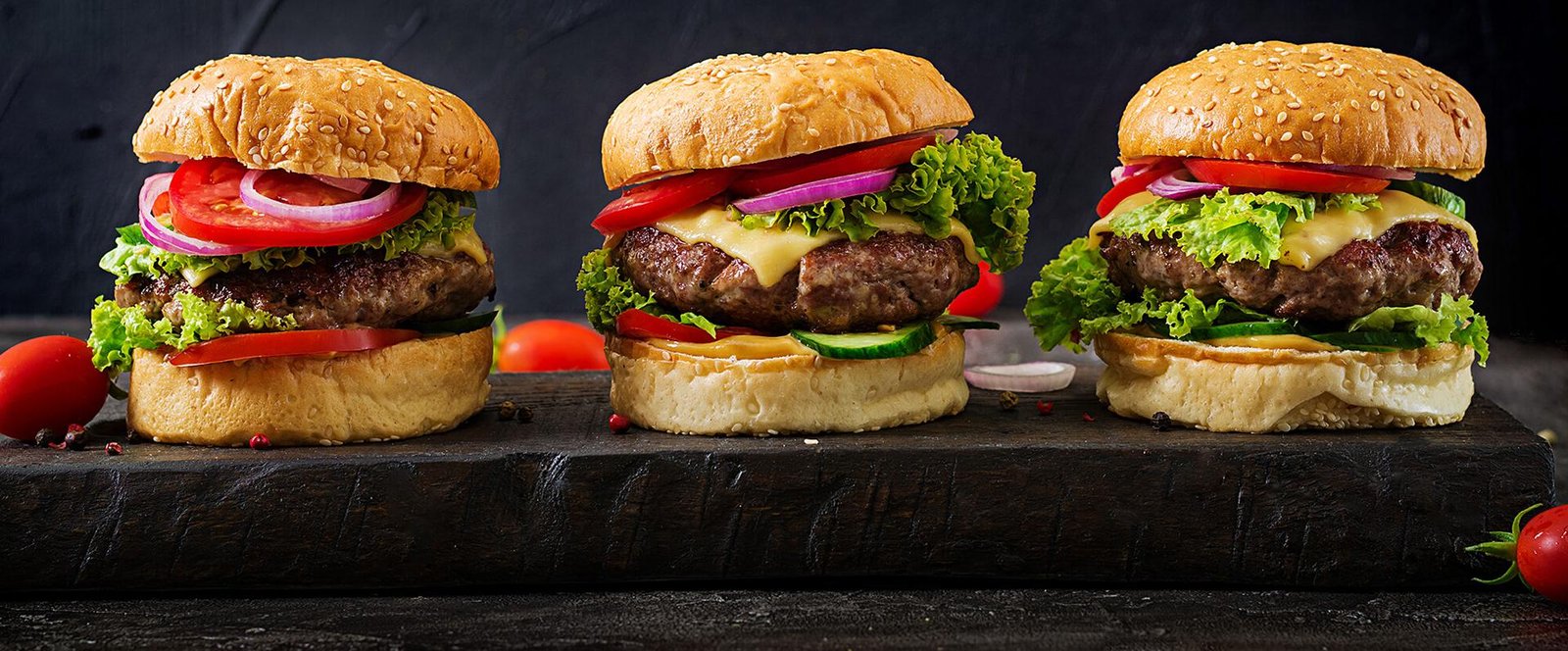Plant-based Burger Patties Market Demand in Quick-Service Restaurants and Food Chains

The rise of the plant-based burger patties market has significantly impacted the global foodservice industry, particularly within quick-service restaurants (QSRs) and large food chains. Once considered niche, plant-based burgers have moved to the mainstream, driven by shifting consumer preferences, sustainability concerns, and an evolving fast-food landscape. Today, global QSRs are not only including plant-based patties on their menus but also using them as strategic tools to attract new demographics, increase footfall, and boost brand image.
Market Overview
As of 2025, the demand for plant-based burger patties in the QSR segment accounts for over 30% of the total plant-based burger patties market volume. This trend is expected to grow steadily, with forecasts estimating a compound annual growth rate (CAGR) of 11–14% through 2030. This growth is influenced by:
-
A global surge in flexitarian diets
-
Rising interest in sustainable and ethical food
-
Increasing partnerships between plant-based brands and foodservice providers
-
Millennial and Gen Z consumer behaviors shaping QSR offerings
Key Drivers of Demand in QSRs and Food Chains
1. Changing Consumer Preferences
Consumers are actively seeking alternatives to red meat without sacrificing taste or convenience. The target audience includes:
-
Flexitarians who occasionally eat meat but prefer plant-based when available
-
Vegetarians and vegans who want options beyond salads and fries
-
Health-conscious diners avoiding cholesterol and saturated fat
-
Environmental advocates reducing their carbon footprint
2. Menu Diversification and Inclusivity
Food chains are expanding their offerings to be more inclusive. Plant-based burgers appeal to:
-
Diverse dietary needs (e.g., dairy-free, halal, kosher, allergen-free)
-
Families and groups with mixed preferences
-
International audiences with culturally sensitive food choices
3. Brand Reputation and ESG Goals
Offering plant-based options helps QSRs improve their Environmental, Social, and Governance (ESG) profiles. Brands seen as progressive and responsible tend to gain consumer trust and loyalty.
Leading Food Chains Driving the Trend
Burger King
-
One of the first global QSRs to embrace plant-based patties
-
Launched the Impossible Whopper in the U.S. and Rebel Whopper in Europe
-
Partnered with Impossible Foods and The Vegetarian Butcher depending on region
McDonald’s
-
Introduced the McPlant burger, co-developed with Beyond Meat
-
Rolled out in multiple markets, including the U.S., UK, Sweden, and Germany
-
Aims to integrate plant-based items into core menus globally
Subway
-
Piloted Beyond Meatball Subs in select countries
-
Offers customization with plant-based patties and vegan toppings
KFC
-
Partnered with Beyond Meat for plant-based chicken and burger offerings
-
Successful launches in the U.S., UK, and China indicate growing demand
Domino’s and Pizza Hut
-
Offer plant-based burger patty crumbles as toppings
-
Focus on expanding plant-based offerings across pizza and sides
Regional Chains
-
Haldiram’s (India), MOS Burger (Japan), Grill’d (Australia), and others now include gourmet-style plant-based burgers
-
Often develop localized versions to meet regional tastes
Supply Chain Collaboration
Successful integration of plant-based burger patties in QSRs depends on reliable supply chains:
-
Co-manufacturing agreements between plant-based companies and foodservice suppliers
-
Focus on scalability, consistency, and cost-efficiency
-
Development of frozen or ready-to-cook patties tailored for foodservice requirements
Challenges in the QSR Segment
1. Price Sensitivity
Plant-based burgers often cost more than beef patties, limiting accessibility in price-sensitive markets.
2. Taste Expectations
Consumers expect plant-based patties to taste and feel like real meat, especially when served in a fast-food context.
3. Operational Constraints
-
Cross-contamination concerns among vegans
-
Storage and cooking methods may differ from meat, requiring staff training and kitchen adjustments
4. Marketing Fatigue
Some consumers now question “greenwashing” and demand genuine sustainability rather than trend-driven menu additions.
Regional Insights
North America
-
Leading market with wide availability in fast-food outlets
-
Rapid expansion driven by Gen Z demand and environmental activism
Europe
-
Strong regulatory backing for plant-based foods
-
Fast-food chains offer multiple vegan-certified menu items
Asia-Pacific
-
Rapid adoption in urban hubs
-
Chains localize offerings with ingredients like tofu, jackfruit, or mushroom patties
Latin America and Middle East
-
Emerging interest driven by health trends and international QSRs entering the region
-
Halal-compliant and allergen-free options gaining attention
Innovation in QSR-Friendly Plant-Based Patties
To serve the needs of QSRs, companies are innovating in:
-
Faster cooking patties with consistent performance on grills and fryers
-
Longer shelf-life products using natural preservatives
-
Modular formats like sliders, wraps, or patty crumbles for multi-use in menus
Marketing and Promotion Strategies
QSRs are using targeted campaigns to promote plant-based burgers:
-
Celebrity endorsements (e.g., Travis Scott for McDonald’s)
-
Limited-time offers (LTOs) to test market response
-
Sustainability-focused storytelling via in-store signage and digital platforms
-
Vegan month campaigns like Veganuary and Earth Day tie-ins
Future Outlook: 2025–2030
By 2030, the role of plant-based burger patties in QSRs is expected to expand with:
-
Broader menu integration beyond just burgers
-
Lower price points due to economies of scale
-
AI-driven menu personalization for dietary preferences
-
Sustainably sourced ingredients becoming a baseline requirement
As demand grows and consumer expectations evolve, QSRs will likely shift from treating plant-based burgers as optional add-ons to core menu offerings.
Conclusion
The plant-based burger patties market is experiencing a powerful surge in demand from quick-service restaurants and food chains. With global players embracing these offerings, driven by consumer demand for healthier and more sustainable options, plant-based burgers are no longer a trend—they are a strategic business imperative. As product innovation continues to align with fast-food speed and flavor expectations, the future of plant-based eating in QSRs looks exceptionally promising.





